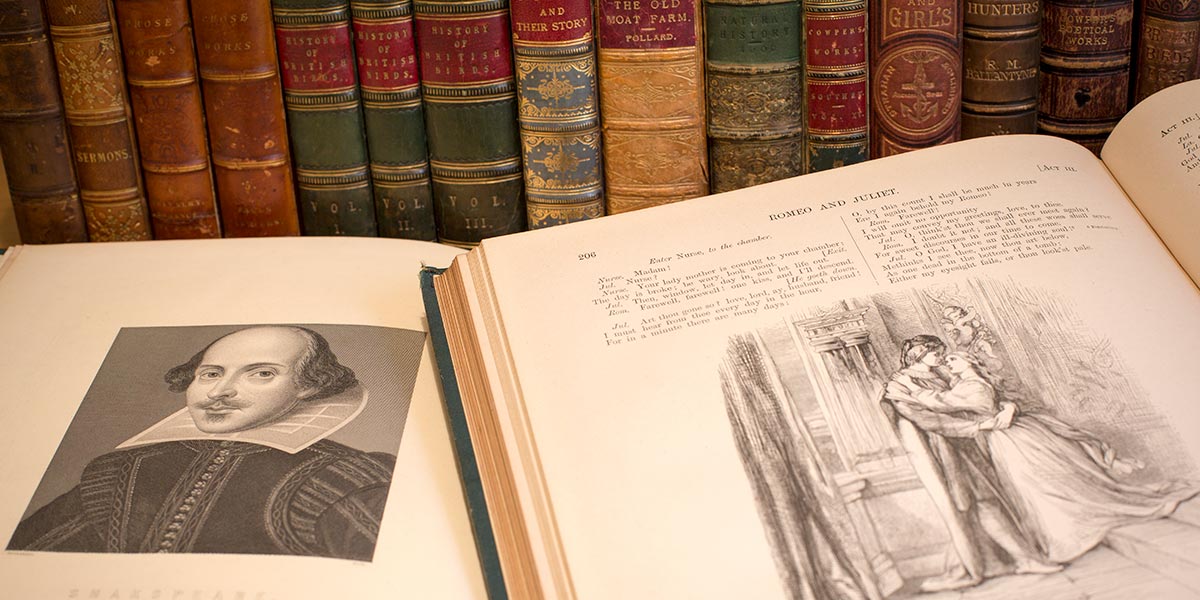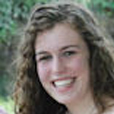View semester dates
2 years part-time

Explore one of the most exciting periods of English literature and history.
Year of entry: 2026 (September)
The MA in Renaissance Literature 1500-1700 is an intensive and exciting survey of the literary culture of the 16th and 17th centuries. The transformations in religion, politics, the technologies of writing and publication, science and global exploration, which continue to resonate today, prompted some of the most vibrant, difficult, and rewarding writing ever produced.
You’ll be introduced to key authors, texts, and ideas from the period, and will construct a distinct, individually chosen programme of study from a wide range of options. You’ll develop your research skills and apply these to a substantial piece of independent research, taught and supervised by world-leading scholars in one of the UK’s most prestigious centres for early modern studies.
You’ll gain a foundation for doctoral research in early modern literature and culture, as well as transferable skills for related careers in teaching, publishing, arts management and journalism. You’ll engage with the research culture of the Department of English and Related Literature and the Centre for Renaissance and Early Modern Studies, with a diverse schedule of seminars, conferences and reading groups for you to attend.

I have enjoyed every second of my course and I've felt incredibly lucky to have been taught by numerous people. It's meant that I've had the benefit of different scholars from specific specialisms within the Renaissance which means that I've learned a lot and developed my knowledge further.
Join a team of world-leading scholars, working at the cutting edge of our discipline to explore an extraordinary world of literature, and illuminate some of its local, European, and global contexts. In our core seminars, research events, trips, and collaborations you'll build up a comprehensive set of research skills. Ambitious and imaginative option modules will extend your current interests, and open up a novel set of perspectives on well-known texts and more obscure works.
You'll study one core module (20 credits) and choose three modules (20 credits each) from a range of options offered by the Department of English and Related Literature and other arts and humanities departments. You'll study two short research skills training modules (10 credits each), and complete a research dissertation (80 credits). The total number of credits for the course is 180.
For the core module, taught by a team of specialists, you'll engage with modern and early modern theories of the text. This will equip you with a rich critical vocabulary, skill-set, and analytical approach. On the Postgraduate Life in Practice module, you'll learn valuable skills in research, writing, reflection, presentation, publishing and career development.
You will also study three option modules. Examples can be found below. Some option module combinations may not be possible. The options available to you will be confirmed after you begin your course.
Our modules may change to reflect the latest academic thinking and expertise of our staff, and in line with Department/School academic planning.
Your dissertation offers you the chance to examine a topic in depth and to develop your research skills.
In Summer Term and over the vacation you'll work on a 12,000-14,000-word dissertation with regular supervision from a member of staff.
You'll submit your dissertation in September. Recent dissertation topics have included:
Every course at York is built on a distinctive set of learning outcomes. These will give you a clear understanding of what you will be able to accomplish at the end of the course and help you explain what you can offer employers. Our academics identify the knowledge, skills, and experiences you'll need upon graduation and then design the course to get you there.

The teaching staff in the Department encourage us to follow our passions and provide the space to do so. We've had regular opportunities to interact with leading scholars in the field from near and far.
| Study mode | UK (home) | International and EU |
|---|---|---|
| Full-time (1 year) | £12,000 | £26,900 |
| Part-time (2 years) This is the year 1 fee. Fees for future years are subject to confirmation. |
£6,000 | £13,450 |
Students on a Student Visa are not currently permitted to study part-time at York.
For courses which are longer than one year, the tuition fees quoted are for the first year of study.
UK (home) or international fees? The level of fee that you will be asked to pay depends on whether you're classed as a UK (home) or international student. Check your fee status.
Find out more information about tuition fees and how to pay them.
You'll need copies of the texts set for each module. Where possible, we will provide digital access. We'll let you know which texts and editions you'll need to buy (whether new or second-hand) before the start of each semester.
Discover your funding options to help with tuition fees and living costs.
We'll confirm more funding opportunities for students joining us in 2026/27 throughout the year.
If you've successfully completed an undergraduate degree at York you could be eligible for a 10% Masters fee discount.
We are pleased to work with Chevening Scholars to offer funding for our Masters programmes. Chevening Scholarships provide one year of fully-funded postgraduate study in the UK for international (including EU) students. The scholarships are open to early and mid-career professionals who have the potential to become future leaders.

The teaching has been stimulating and inspiring, and the Centre for Renaissance and Early Modern Studies brings together a range of interdisciplinary approaches as part of the wider intellectual environment.
You’ll work with world‐leading academics who’ll challenge you to think independently and excel in all that you do. Our approach to teaching will provide you with the knowledge, opportunities, and support you need to grow and succeed in a global workplace.
You'll normally attend two 2-hour seminars each week during the Autumn and Spring Terms. If you are a part-time student you'll attend one 2-hour seminar a week during the Autumn and Spring Terms of Year 1 and Year 2.
Seminar groups consist of fewer than 16 students in most modules, though some core modules may be taught in larger groups. You'll complete essential reading for each seminar, and we encourage you to read more widely around the topic.
You'll attend a series of training lectures and workshops, designed to address presenting your work, writing at MA level, transferable skills, and career development.
The University Library has extensive resources, and you can study the exciting collections of early modern books in the Minster Library (the largest cathedral library in the UK).
York's long history and prime location makes it an excellent place to study this period. You can choose to take classes in the beautiful Minster Library, learn palaeography in one of the biggest archive repositories outside London, and study Latin or a range of other languages. There are frequent field trips – destinations have included a behind-the-scenes look at the Castle Museum, the magnificent Fountains Abbey, Castle Howard, Burton Agnes Hall, and Hardwick Hall.
Writers at York is a lively programme of readings and workshops, and aims to celebrate and explore the work of emerging and established contemporary writers. Writers at York is supported by the University of York's External Engagement Awards and the Festival of Ideas.
You will be based in the Department of English and Related Literature on Campus West. Most of your contact hours will be in locations nearby on Campus West.
Our beautiful green campus offers a student-friendly setting in which to live and study, within easy reach of the action in the city centre. It's easy to get around campus - everything is within walking or pedalling distance, or you can always use the fast and frequent bus service.
You'll submit an essay for each module of approximately 3,500-4,000 words. The Postgraduate Life in Practice module will be assessed on the completion of a series of tasks connected to your core work for the MA. Your final assessment is a dissertation of 12,000-14,000 words.
Our postgraduates go into academia and teaching, arts administration, journalism, broadcasting, public relations, social work, politics, the civil service, and management consultancy. Many alumni have also gone on to become successful novelists, poets and playwrights.
You'll develop a range of transferable skills including:
| Qualification | Typical offer |
|---|---|
| Undergraduate degree | 2:2 or equivalent. We will consider applications from students with lower qualifications, particularly if you have high marks in relevant modules or appropriate professional experience. |
| Other international qualifications | Equivalent qualifications from your country |
You will need to submit examples of written work with your application. Please see our guidance on submitting written work.
If English isn't your first language you may need to provide evidence of your English language ability. We accept the following qualifications:
| Qualification | Minimum requirement |
|---|---|
| IELTS (Academic and Indicator) | 6.5, minimum 6.0 in each component |
| Cambridge CEFR | B2 First: 176, with 169 in each component |
| Oxford ELLT | 7, minimum of 6 in each component |
| Oxford Test of English Advanced | 136, minimum 126 in each component |
| Duolingo | 120, minimum 105 in all other components |
| LanguageCert SELT | B2 with 33/50 in each component |
| LanguageCert Academic | 70 with a minimum of 65 in each component |
| Kaplan Test of English Language | 478-509, with 444-477 in all other components |
| Skills for English | B2: Merit overall, with Pass with Merit in each component |
| PTE Academic | 61, minimum 55 in each component |
| TOEFL | 87, minimum of 21 in each component |
| Trinity ISE III | Merit in all requirements |
For more information see our postgraduate English language requirements.
You may be eligible for one of our pre-sessional English language courses. These courses will provide you with the level of English needed to meet the conditions of your offer.
The length of course you need to take depends on your current English language test scores and how much you need to improve to reach our English language requirements.
After you've accepted your offer to study at York, we'll confirm which pre-sessional course you should apply to via You@York.
Get in touch if you have any questions
Find out more about all of our English MA courses.



